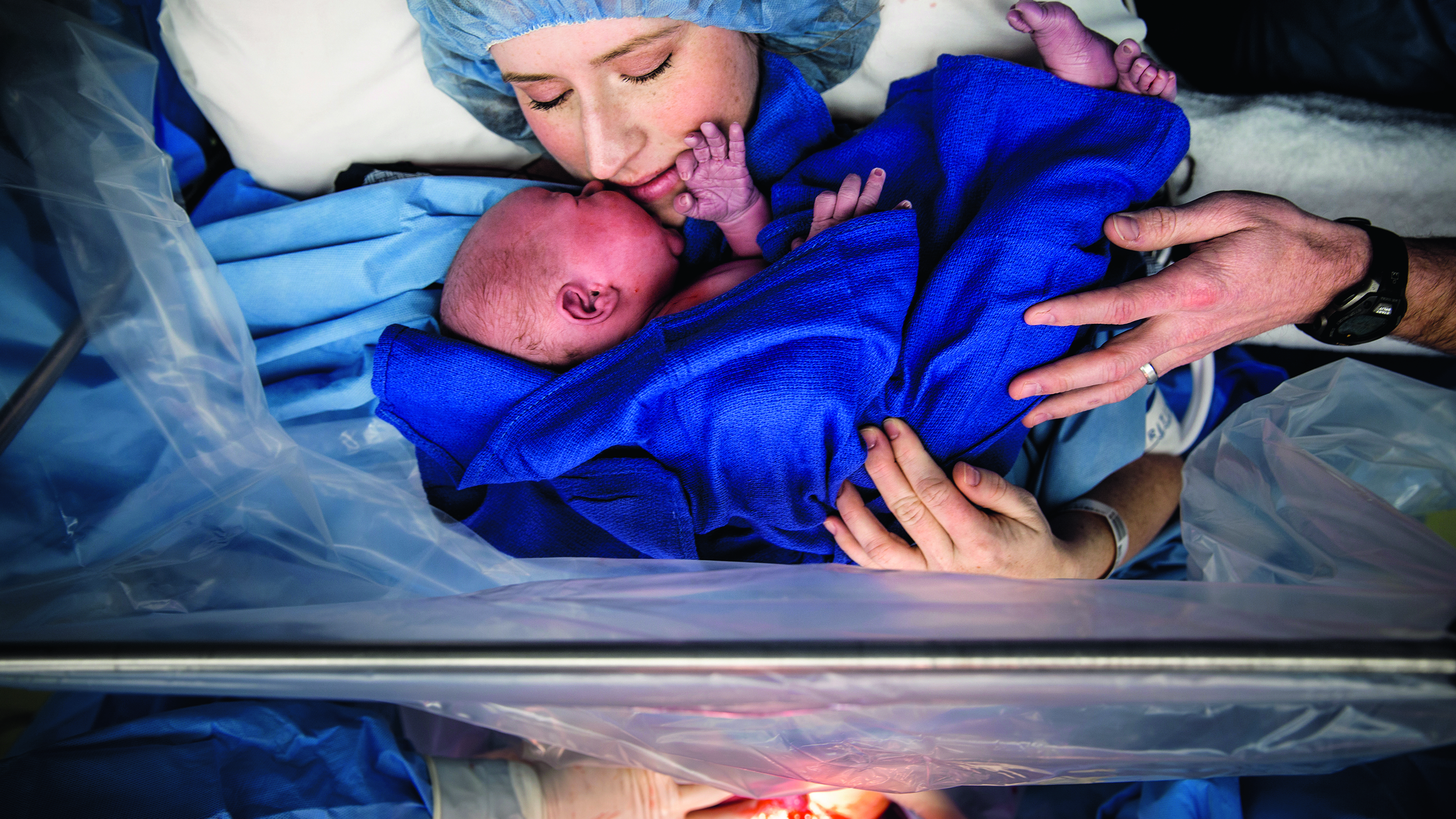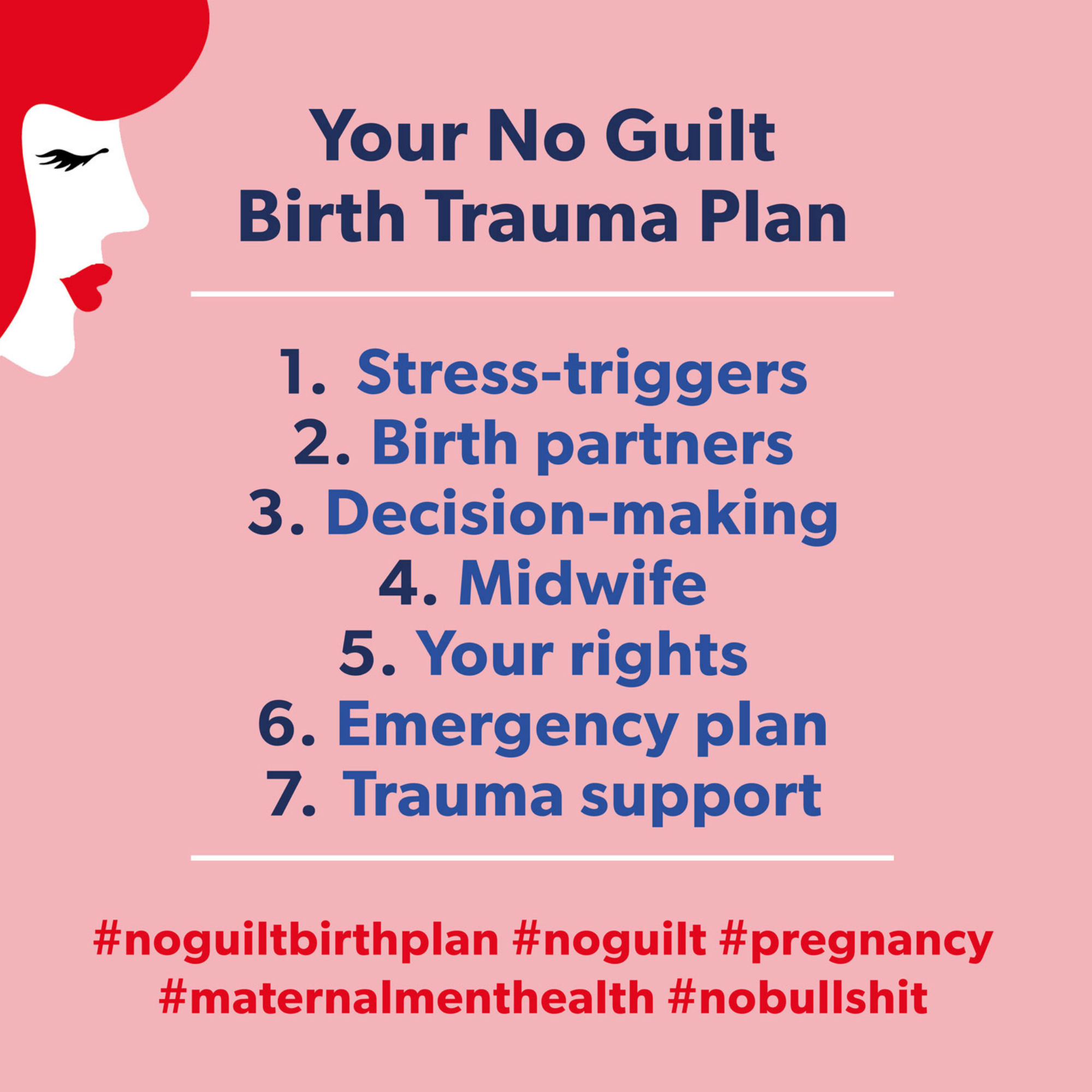A new campaign for less guilt and more support in childbirth has launched and we're so on-board
Yes to this.

Yes to this.
Positive birth is a new movement that is empowering women across the UK to take more control over their pregnancies and births. And it couldn't come soon enough.
Childbirth is one of life’s greatest unknowns, but a new woman-centred approach to policy and conversations around it is proving reassuring for expectant mothers. Few subjects are more emotive than birth, and fewer still more divisive. Pregnant women once fell into distinct camps: Team Home-Birthers and Team Labour Ward, and rarely did the two meet. But across the battle lines, mothers and maternity practitioners are joining forces to create a more honest dialogue around birth – however it may happen – to provide better support.
Siobhan Miller is a hypnobirthing practitioner and mother-of-three from Devon. She says, ‘A positive birth is a birth experience that leaves a woman feeling empowered rather than traumatised – where the mother’s wishes are respected, she is listened to and feels calm, confident and informed. Water birth, C-section, whatever – it’s no particular type of birth; the mechanics of how a baby is born matter little.’
Positive birth: 'Mothers need to feel listened to'
Giving women the tools to make the right decisions for her and her baby is at the heart of a new approach that’s transforming services across the country. With the number of applications for midwifery courses falling and fears over a scarcity of senior staff to support trainees and new graduates on the ground, self-knowledge is arguably more important than ever. ‘The National Maternity Review’ by Baroness Julia Cumberlege, a report published in 2016, looked at ways to ensure better outcomes and experiences for women, pre- and postnatally. We’re now in the second year of policy implementation of a five-year plan to save the lives of women and babies, and revolutionise the way women give birth. The most important thing, says Jacque Gerrard, director of the Royal College of Midwives, is the emphasis on the continuity of care service model (COC), where mums-to-be see the same midwife throughout their pregnancy. By 2025, every trust in England will offer this model, with 20 per cent of British women having access to it by the end of 2019.
Maternal mental health is another focus point. This year, perinatal clinical psychologist Emma Svanberg launched a campaign, Make Birth Better, to tackle postnatal depression and postnatal post-traumatic stress by providing a platform for women to share their birth experiences. After analysing the data, Svanberg felt that small changes could have made an enormous difference. ‘Better support and more compassion are the key,’ she says.
How to avoid a traumatic birth
Rebecca Schiller is the author of game-changing new birth and pregnancy guide, Your No Guilt Pregnancy Plan (14.99, Penguin Life). She is also CEO of Birthrights, the charity for human rights in childbirth, an experienced doula and mother of two. Here, Rebecca talks us through her tips for a more positive birth.
Marie Claire Newsletter
Celebrity news, beauty, fashion advice, and fascinating features, delivered straight to your inbox!
Approximately 30% of women describe their experience of childbirth as traumatic, but it doesn’t have to be this way. Research conducted by midwives suggests that how you are treated, who is with you and how involved you are in decisions during labour could be the most important factors in preventing birth trauma. So whether you a planning an elective caesarean, a homebirth or are keen to go with the flow, here are seven things you can do to help avoid or recover from a traumatic birth.

1. Work out what your calm and stress triggers are so you can make a feasible, personalised birth plan
2. Choose your birth partner(s) carefully and have an honest conversation - in advance - about the kind of birth support you want and need. A doula can really help. See doula.org.uk for details.
3. Practice in-labour decision making with your birth partner(s). Use the BRAIN decision-making tool from Your No Guilt Pregnancy Plan to get good information quickly and make the right decision for you
4. Book in with a small team of midwives you can build a relationship with. If you have a complicated pregnancy, mental health issues or are planning a homebirth you might find it easier to access a midwife you can get to know and trust. Talk through any less common requests or fears with them in advance.
5. Get to know your rights in childbirth - from requesting a caesarean to planning a homebirth - by visiting birthrights.org.uk and reading Chapter 5 of Your No Guilt Pregnancy Plan
6. Ask your partner to stay close to you in any emergency situation. Train them to keep talking calmly to you about what’s happening. If you are separated from your baby your partner, midwife or doula can bring you photos, information or simply narrate what’s happening.
7. If you do have a difficult birth, visit makebirthbetter.org/gethelp to find support and therapy local to you. And if you are feeling worried about giving birth after previous trauma the exercises in chapter 12 of Your No Guilt Pregnancy Plan have been specially designed for you.
The leading destination for fashion, beauty, shopping and finger-on-the-pulse views on the latest issues. Marie Claire's travel content helps you delight in discovering new destinations around the globe, offering a unique – and sometimes unchartered – travel experience. From new hotel openings to the destinations tipped to take over our travel calendars, this iconic name has it covered.
-
 I was told I was too girly to be gay — When will society stop judging women on how we look?
I was told I was too girly to be gay — When will society stop judging women on how we look?Why femme invisibility is a feminist issue
By Roxy Bourdillon
-
 Walking workouts are the hottest form of exercise RN - 5 best walking workouts for beginners to boost fitness and mood
Walking workouts are the hottest form of exercise RN - 5 best walking workouts for beginners to boost fitness and moodYour ultimate guide.
By Katie Sims
-
 I have no time to be faffing with brushes, but a make-up sponge is an essential in my routine—here are the 6 best
I have no time to be faffing with brushes, but a make-up sponge is an essential in my routine—here are the 6 bestEssential for smooth, seamless skin
By Mica Ricketts